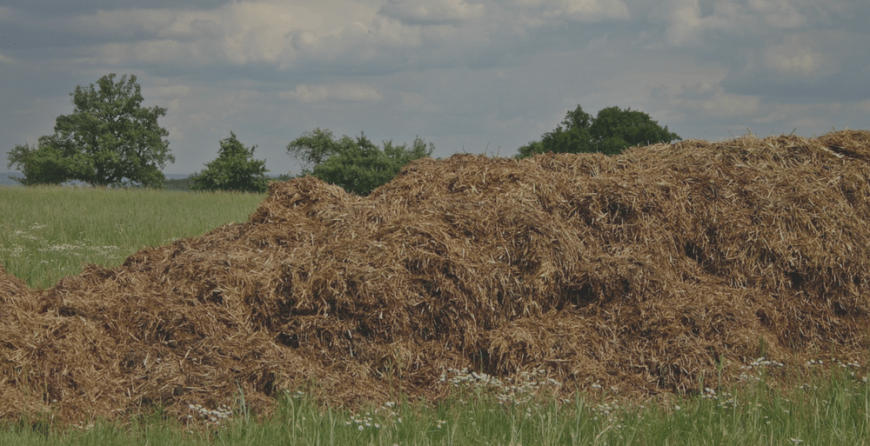 Unlike chemical fertilizers that deprive your soil off essential nutrients, organic fertilizers nourish your plants and boost your soil quality. Garden soil that contains enough organic matter remains loose and airy enough to accommodate nutrients and retain moisture longer. Additionally, they encourage the growth of healthier, stronger roots as well as soil organisms such as earthworms. To harvest the best produce, you must start with making your soil healthy with the right organic fertilizers.
Unlike chemical fertilizers that deprive your soil off essential nutrients, organic fertilizers nourish your plants and boost your soil quality. Garden soil that contains enough organic matter remains loose and airy enough to accommodate nutrients and retain moisture longer. Additionally, they encourage the growth of healthier, stronger roots as well as soil organisms such as earthworms. To harvest the best produce, you must start with making your soil healthy with the right organic fertilizers.
Organic fertilizers are made from animal sources, plant sources and some from rock powder. These are materials that require soil microbes to break down slowly and transform to fertilizers. The slow breakdown translates to slow release of nutrients when used in gardens. Hence, the soil enjoys a steady and long-term supply of essential nutrients.
Organic fertilizer types
There are two main types of organic fertilizers; liquid and dry fertilizers. Both types are great and serve their intended purpose. Their difference is the mode of application and sources. Dry fertilizers include; blood meal, rock phosphate, bone meal and bat guano just to mention a few. Dry fertilizers provide food for the beneficial soil organisms. The organisms break down the dry fertilizer slowly to offer the nutrients your crops require to grow.
Dry fertilizers are applied over the garden then mixed with the soil to a depth of 5 inches. The mixing ensures that plant roots benefit from the organic dry fertilizer when planting season comes because it does not dissolve in the soil immediately. If you do not apply the fertilizer before planting season, you can add it to planting holes as you transplant seedlings or sow. Dry fertilizer can also be side dressed by mixing it alongside the crops as they grow. This application method works effectively when combined with the 2 top soil inches.
In comparison with dry fertilizers, liquid fertilizers are less concentrated. They are light nutrient boosters that are designed to maximize crop performance. They are mainly applied through root drench or watering methods. They can also be applied through foliar feeding method that delivers nutrients via the leaves or foliage. Most gardeners prefer the foliar feeding method because it offers quick results, offers essential growth elements such as iron and since it is applied directly to leaves or foliage, it is more effective as compared to other aforementioned application methods. However, foliar feeding should take place during early morning or late evening when evaporation is minimal, and leaves can absorb liquids quickly.
Fertilizer essentials
Fertilizer essentials are the nutrients necessary for all plants to grow and give the best produce. They are; potassium, phosphorus, and nitrogen. All fertilizers whether organic or conventional should contain these three macronutrients.
Nitrogen ensures that your crops are green and grow to their maximum size and productivity. It can be added to soil through the fish meal, blood meal or alfalfa meal. However, it should be applied to the right or specified quantity. Too much can result in long weak crops while less slows down growth.
Phosphorous is responsible for promoting strong roots, healthy growth and resistance to opportunistic diseases. Purplish stems and dull green leaves signify the lack of phosphorous. Great sources of phosphorous include; bone meal, rock phosphate, and a few guanos.
Potassium boosts vigor and general crop development. It also plays a major role in protecting crops from succumbing to cold weathers and diseases. Lack of potassium is signified by discoloration of leaves or their edges. Sulfate of potash magnesia and greensand are excellent sources of potassium.
Conclusion
Organic fertilizers contain the above macronutrients at the right quantities. As such, you will not have to worry about the effects of using more or fewer nutrients than required. However, it is advisable to get a soil test first before choosing a fertilizer type. There are different organic fertilizer type designed to address different soil deficiencies. Get the fertilizer that will address your gardening needs. To get the best results, ensure that you apply the fertilizers as directed.



The article you have write its really teach me something new
and give me new experience.Keep writing eagarly will wait
for future post.
Thank you.
Gee, Thanks!